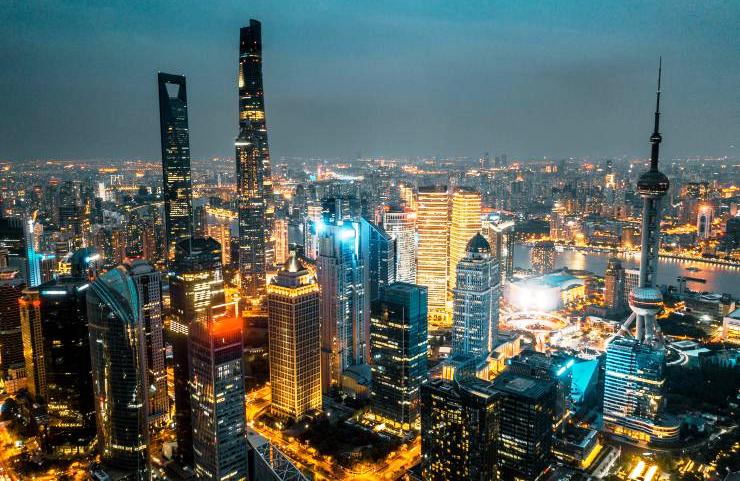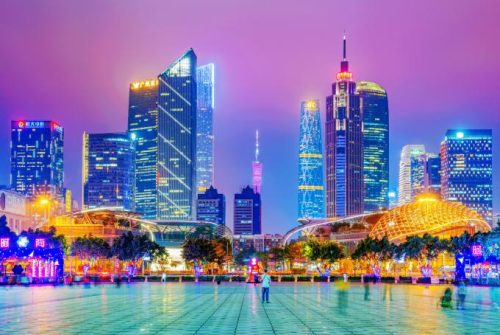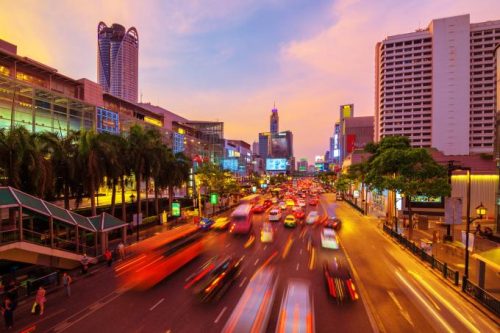Smart Cities on the Asian geopolitical scene.

The development of smart cities in ASEAN countries is of fundamental importance to respond to the challenges posed by the dizzying urbanization of South-East Asia. The need to develop more resilient, efficient and sustainable urban centres.
The challenges posed by urbanization increasingly require the help of technology and artificial intelligence for the administration of public spaces. From this need, the concept of “Smart City” was born, i.e. an urban environment that uses IT tools for purposes that include resource management, security, pollution control, green mobility and crime monitoring. By collecting and analysing a large amount of data, smart cities would guarantee better and more efficient city management, filling the usual gaps in public administration. The development of smart cities is an increasingly pressing need in areas that foresee vertiginous population growth, including South-East Asia: according to statistics, it is expected that there will be a further 70 million people living in the major urban centres of the ASEAN countries.

China. The view of the Guangzhou city skyline in the Zhujiang New Town downtown financial district area.123rf
China has long developed a system of smart cities based on a solid and proven architecture, which is also in line with national development objectives and priorities. The Ministry of Public Security and several private companies – the main promoters of smart cities – have been able to connect various devices and IT solutions to develop urban spaces with a command centre called “City Brain”. Using artificial intelligence, the “city brain” analyses the data and transmits it to a city control centre. The data is then processed and transformed into indications, suggestions, warnings and further inputs: local decision-makers are finally required to translate this information into decision-making outputs. The objectives of the Chinese Government range far beyond mere urban management: Beijing plans to agglomerate numerous urban “city brains” into groups of megacities – possible projects include the Guangdong-Hong Kong-Macao Greater Bay Area and the Yangtze River Delta area -, expanding the system up to provincial and regional “city-brains”. This network should then evolve into a national “city brain” and, ultimately, a global system. Despite the ambitious projects, at the moment the largest market for smart cities remains China, with around 500 plans underway.
Urbanisation, security and resources
China’s global ambitions find fertile ground in ASEAN countries, driven by the need to develop more resilient, efficient and sustainable urban centres. This need was expressed during the 2018 ASEAN Smart Cities Network, held during the Presidency of Singapore. The following year, during the ASEAN summit in Bangkok, the ASEAN Smart Cities Network Action Plan was drawn up, aimed at identifying the six main focus areas – health, security, ecology, infrastructure, industry and innovation and civil society – and the launch of 26 pilot projects. These include cities such as Bangkok, Hanoi, Ho Chi Minh City, Kuala Lumpur, Manila, Singapore, Vientiane and Yangon. At the same time, the United States, Australia, South Korea, Japan and China were designated as main partners for the implementation of the development plans.

Thailand. Road with traffic jams. Area in front of Central World. The Economic Centre of Bangkok. 123rf
This partnership fits well with the global ambitions of Beijing, which has encapsulated the aforementioned projects within the broader perimeter of the Belt and Road Initiative (BRI) and, in particular, the Digital Silk Road. Already experts in offering similar services at a national level, companies such as Huawei, Tencent and ZTE have a significant advantage over their competitors and in fact, dominate the Asian market. Beijing has already started a collaboration with Jakarta for the construction of the new capital, Nusantara, and for the launch of a further hundred smart cities by 2045: Indonesia is especially interested in developing solutions for the use of resources, the management of energy sources and the monitoring of pollution. Starting in 2020, Kuala Lumpur has instead adopted Alibaba’s “city brain” to guide Malaysia’s tech transition, provide the necessary IT tools to universities, businesses and institutions and improve city management.
Beijing is also engaged in additional projects, including New Manila in the Philippines, New Yangon City in Myanmar, the Eastern Economic Corridor in Thailand and Forest City in Malaysia.

Japan. Asia business concept for real estate and corporate construction in Tokyo. 123rf
Although the solutions offered by Beijing are aligned with the China-ASEAN Strategic Partnership Vision 2023, there are several problems. Competition between China and the United States, as well as concerns in terms of security and privacy, have in fact discouraged Vietnam from relying on Chinese tech solutions, leading Hanoi to rely instead on Western companies such as Qualcomm, Nokia and Ericsson. Although supportive of Beijing’s initiatives, Singapore, Malaysia and the Philippines have similarly expressed the need to diversify partnerships so as not to be negatively affected by the zero-sum competition between China and the United States.
A competitive game
The construction of smart cities in ASEAN countries takes on increasingly geopolitical connotations in the intricate Asian scene: despite the consolidated Chinese expertise representing an indisputable advantage for Beijing, China has to face various issues. Among these, the difficulty of entering a strictly regulated market like that of Singapore has led to the defeat of Huawei vis-à-vis Ericsson and Nokia.
In Indonesia, however, China experienced the complications of a market economy with full private property rights in the construction of the Jakarta–Bandung High-Speed Railway.
Finally, Malaysia expressed uncertainty about how Forest City Johor Bahru will bring employment and access to affordable housing for the population. Coupled with data security and privacy concerns, national security considerations and incompatibility of tech standards, China’s top-down approach is being questioned by ASEAN members themselves.

Beautiful architecture building skyscrapers around Marina Bay in Singapore City. 123rf
To respond to these concerns, additional actors such as the United States, Australia, New Zealand, India, Russia, Japan and South Korea are included in the equation: these countries represent an important alternative for the ASEAN countries, which have always been committed to maintaining a strategic balance between the major global players. There are also further non-state actors, such as Singaporean investor Temasek Holdings – Mitsubishi and Amata Corporation – a Thai industrial construction contractor – which has launched or announced projects in the region, increasing competition and pressure between the various stakeholders involved.
The rivalry between Beijing and Washington represents another important variable capable of influencing the geopolitics of smart cities: following the US ban on Huawei, there has been a polarization of IT systems for smart cities and a technological decoupling. This competition could push China to seek further tech independence and accelerate research and development. The incompatibility of standards and systems could make any future attempt at collaboration between the actors involved impossible, also making the construction of smart cities a zero-sum competitive project.(Open Photo:The city scene of Shanghai at night.123rf)
Francesca Leva/CgP



